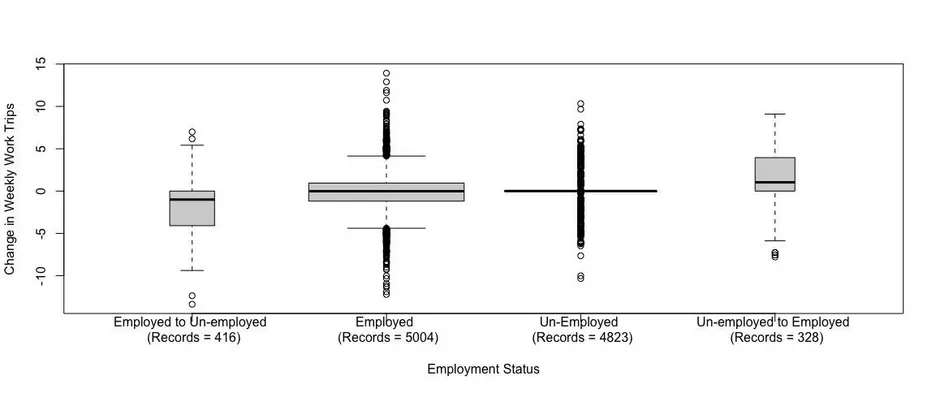Explainable AI to understand the impact of life events on travel behavior change (XAITraB)

(Data source: Deutsches Mobilitätspanel, https://mobilitaetspanel.ifv.kit.edu/)
Traditionally, travel demand models recreate travel behavior from scratch every time the model is executed. However, it is well-known that travel behavior of individuals does not change much from one year to the next unless major life events, e.g. birth of a child or a job change, occur. The team on this proposal has explored German travel panel data and confirmed that life events change travel behavior (compare Figure 1). It remains unclear, however, to which degree life events change travel behavior and how multiple life events (such as birth of a child and relocation) affect travel behavior.
In this project, life events, such as change of employment or household relocation, will be explored as triggers for travel behavior change. The reaction will be measured at least by number of activities, trip length and the chosen mode. An explainable and interpretable AI pipeline will be developed to analyze the travel behavior change triggered by a life event (or combination of life events).
Ultimately, the project goal is to showcase that the use of longitudinal travel panel survey data will allow to much better explain travel behavior compared to traditional approaches that derive travel behavior exclusively from socio-demographic attributes using cross-sectional travel surveys.
Research Team
PI: Prof. Dr. Rolf Moeckel, Professor of Travel Behavior, Prof. Dr. Maximilian Schiffer, Professor of Business Analytics & Intelligent Systems
Researchers: Dr. Ana Moreno, Professorship of Travel Behavior, Kai Jungel, Professorship of Business Analytics & Intelligent Systems
External collaborators: Dr. Usman Ahmed, PostDoc at the University of Toronto